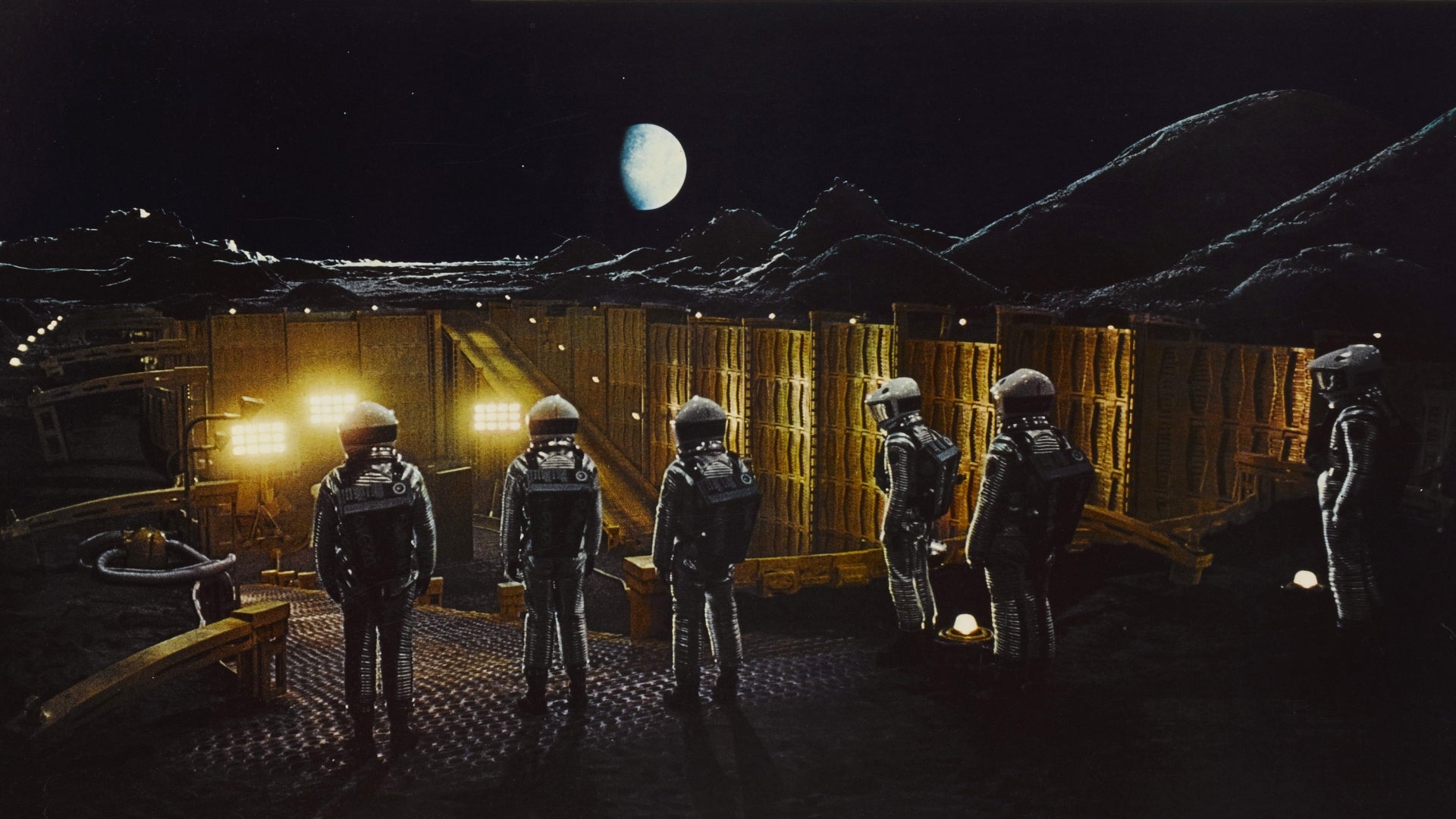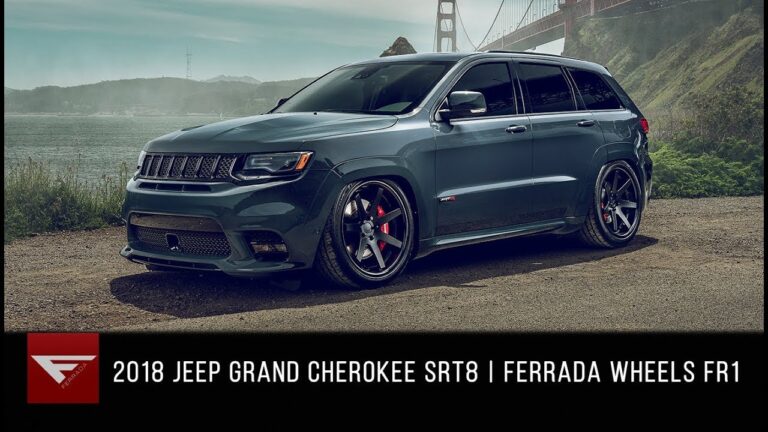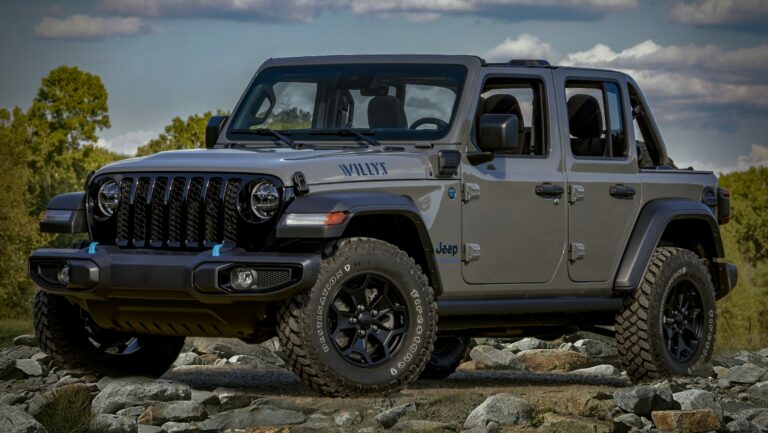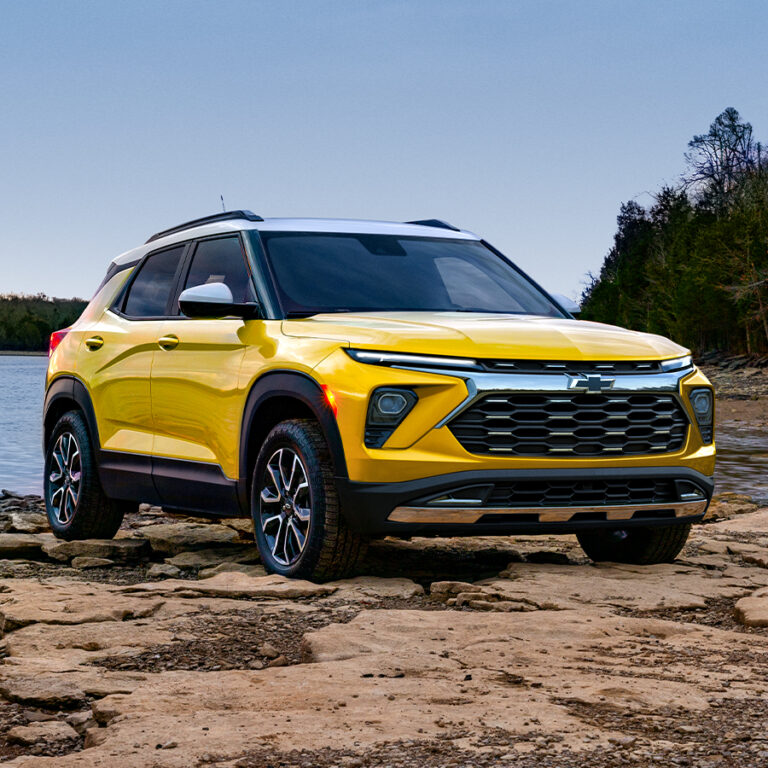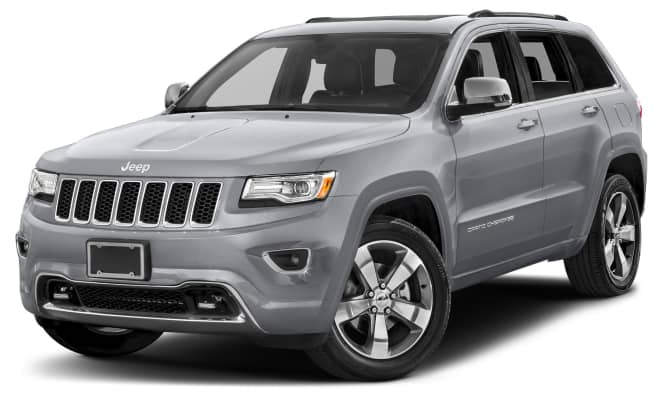2001 Jeep Cherokee For Sale: Your Guide to Acquiring an Enduring Legend
2001 Jeep Cherokee For Sale: Your Guide to Acquiring an Enduring Legend jeeps.truckstrend.com
The search for a "2001 Jeep Cherokee For Sale" isn’t just about finding a used vehicle; it’s about seeking out a piece of automotive history, a robust and versatile machine that has earned its place as an icon. The 2001 model year holds particular significance as the final iteration of the beloved XJ generation, marking the end of an era for a design that revolutionized the SUV segment. Renowned for its unparalleled blend of simplicity, durability, and off-road prowess, the 2001 Jeep Cherokee continues to be a highly sought-after commodity by off-road enthusiasts, DIY mechanics, and anyone looking for a reliable, no-frills utility vehicle. This comprehensive guide will navigate you through everything you need to know about finding, evaluating, and owning a 2001 Jeep Cherokee.
Why the 2001 Jeep Cherokee (XJ) Still Commands Attention
2001 Jeep Cherokee For Sale: Your Guide to Acquiring an Enduring Legend
The Jeep Cherokee XJ, produced from 1984 to 2001, is often lauded as one of the most significant SUVs ever built. The 2001 model represents the culmination of nearly two decades of refinement, retaining the core attributes that made it legendary while incorporating minor updates.
Its enduring appeal stems from several key factors:
- Last of a Breed: As the final XJ, the 2001 model benefits from all the evolutionary improvements made over its production run. It’s the last chance to own a new-ish version of this classic design.
- Legendary 4.0L Inline-Six Engine: The heart of most XJ Cherokees is the virtually indestructible 4.0-liter "Power Tech" inline-six engine. Known for its torque, reliability, and longevity, this engine is a major draw for buyers.
- Solid Axles & Unibody Construction: Unlike many modern SUVs, the XJ features solid front and rear axles, providing superior articulation and durability for off-road use. Its unibody construction, while initially debated, proved to be incredibly strong and lightweight, contributing to its nimble handling.
- Simplicity and Maintainability: The XJ is remarkably straightforward in its design, making it relatively easy for owners to perform their own maintenance and repairs. Parts are abundant and generally affordable.
- Off-Road Capability: Even in stock form, the Cherokee XJ is incredibly capable off-road. Its compact dimensions, short overhangs, and robust drivetrain make it a formidable trail machine, easily modifiable for even greater performance.

Key Aspects to Consider When Buying a 2001 Jeep Cherokee
When you’re looking for a "2001 Jeep Cherokee For Sale," understanding what to look for is crucial. These vehicles are two decades old, and their condition can vary wildly.
Engine & Drivetrain
- The 4.0L I6: Listen for any unusual noises, especially ticking (which can sometimes be exhaust manifold cracks, a common but usually minor issue). Check for oil leaks around the valve cover, oil pan, and rear main seal. While common, excessive leaks indicate neglect.
- Transmission: Most 2001 models came with the Aisin-Warner AW4 automatic transmission, known for its robustness. Test shifts for smoothness; any slipping or harsh shifts could indicate problems. Manual transmissions (like the NV3550) are rarer but also very durable.
- 4WD Systems: The 2001 XJ offered Command-Trac (NP231, part-time 4WD) and Selec-Trac (NP242, full-time and part-time 4WD). Test both 4WD High and 4WD Low. Ensure the transfer case shifts smoothly and engages properly.
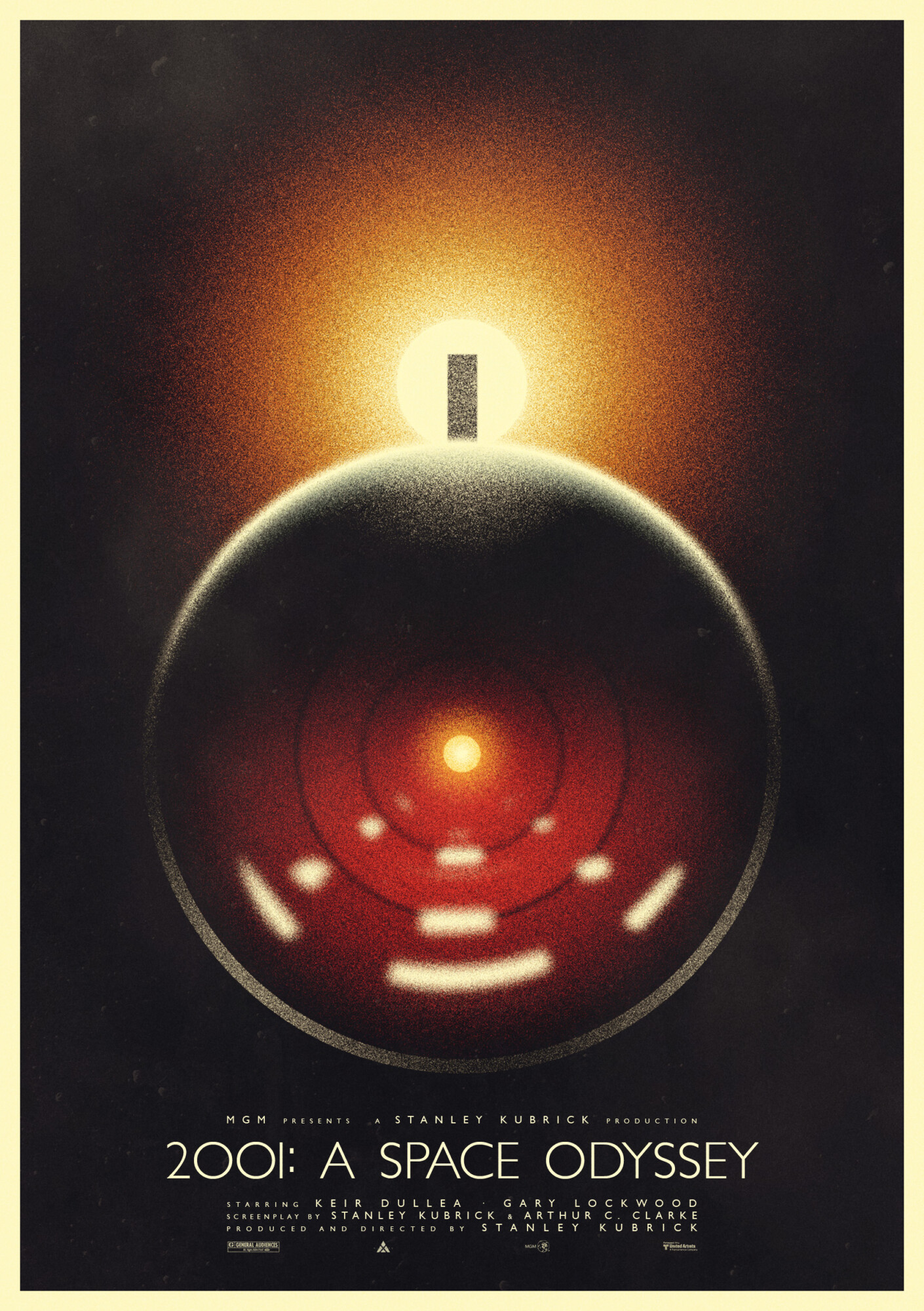
Common Issues & Wear Points

- Rust: This is the XJ’s Achilles’ heel, especially in colder climates where road salt is used. Inspect the rocker panels, floorboards (under carpets), frame rails, wheel wells, and especially the rear quarter panels below the taillights. Surface rust is common; perforating rust is a red flag.
- Cooling System: The 4.0L runs hot. Check for signs of overheating, coolant leaks, and the condition of the radiator, water pump, and hoses.
- Suspension & Steering: Worn leaf springs (rear sag), tired coil springs (front sag), worn control arm bushings, tie rod ends, and ball joints are common. Look for uneven tire wear and listen for clunks or squeaks. Steering slop is often due to a worn steering box or track bar.
- Electrical: While generally reliable, inspect wiring for aftermarket modifications, especially if the vehicle has been heavily customized. Check all lights, gauges, and accessories.
- Interior: Headliners often sag. Check seat condition, especially the driver’s seat.
Trim Levels
The 2001 Jeep Cherokee was available in several trims, each offering slightly different features:
- Sport: The most common and often considered the "purest" XJ experience, offering essential features.
- Limited: Added creature comforts like leather seats, power options, and sometimes full-time 4WD.
- Classic: A mid-range trim with some upscale features but still maintaining a utilitarian feel.
- Country: Often had two-tone paint and more luxurious interior appointments.
Understanding the trim can help you gauge value and feature sets.
The Buying Process: A Step-by-Step Guide
Finding the right "2001 Jeep Cherokee For Sale" requires a systematic approach.
- Research & Budget: Understand typical pricing for your region based on condition, mileage, and trim. Set a realistic budget, including funds for potential immediate repairs or maintenance.
- Where to Look:
- Online Marketplaces: Craigslist, Facebook Marketplace, eBay Motors, AutoTrader are primary sources.
- Specialty Forums & Groups: Jeep XJ forums (e.g., NAXJA, Cherokee Forum) often have "for sale" sections where enthusiasts sell well-maintained vehicles.
- Local Dealerships/Used Car Lots: Less common to find unmolested XJs here, but possible.
- Initial Contact & Questions: Don’t be afraid to ask detailed questions before seeing the vehicle. Inquire about:
- Maintenance history (receipts are gold).
- Known issues or recent repairs.
- Reason for selling.
- Rust situation.
- Modifications (lift kits, aftermarket parts).
- Physical Inspection: When you see the vehicle, take your time.
- Exterior: Look for rust, body damage, uneven panel gaps.
- Interior: Check for water leaks, mold, strong odors, and the condition of upholstery and electronics.
- Underbody: Get underneath if possible. Check frame rails, suspension components, exhaust, and transfer case for leaks or damage. Bring a flashlight.
- Engine Bay: Look for leaks, frayed belts, proper fluid levels, and any signs of shoddy repairs.
- Test Drive:
- Listen for unusual noises (clunks, squeaks, grinding).
- Test brakes, steering (should be relatively tight, not vague), and acceleration.
- Engage 4WD High and Low to ensure they work.
- Pay attention to how the transmission shifts.
- Drive at various speeds and on different road surfaces.
- Pre-Purchase Inspection (PPI): This is highly recommended, even for a relatively inexpensive vehicle. A trusted mechanic (ideally one familiar with Jeeps) can identify issues you might miss, giving you leverage for negotiation or helping you walk away from a bad deal.
- Negotiation: Based on the inspection findings and market value, negotiate the price. Be prepared to walk away if the seller is unwilling to budge on a vehicle with significant issues.
- Paperwork: Ensure the title is clear and matches the seller’s ID. Understand your local requirements for title transfer, registration, and emissions testing.
What to Expect in Terms of Ownership
Owning a 2001 Jeep Cherokee is a unique experience.
- Maintenance: While generally reliable, it’s an older vehicle. Be prepared for regular maintenance and occasional repairs. Fortunately, parts are readily available and often inexpensive, and the XJ is one of the easiest vehicles to work on yourself.
- Fuel Economy: Don’t expect miracles. The 4.0L I6, while robust, is not fuel-efficient. Expect around 15-18 MPG combined, less if heavily modified or driven aggressively.
- Modifications: The XJ has one of the largest aftermarket support communities. From lift kits and larger tires to bumpers and armor, you can transform your Cherokee into an even more capable off-road machine or a unique daily driver.
- Community: The XJ community is vibrant and helpful. Online forums, local clubs, and social media groups offer a wealth of knowledge, advice, and camaraderie.
Tips for Finding the Right 2001 Jeep Cherokee
- Patience is Key: The perfect XJ might not appear overnight. Be prepared to wait for the right one.
- Prioritize Condition: A well-maintained XJ with higher mileage is often a better buy than a lower-mileage example that’s been neglected or abused.
- Ask for Service Records: A seller who can provide a stack of maintenance receipts is usually a sign of a responsible owner.
- Be Wary of "Trail Rigs" Unless You’re Building One: Heavily modified or "beater" Cherokees might be cheap, but they often come with a host of hidden problems or require significant work to be roadworthy.
- Look for Stock or Lightly Modified Examples: These tend to have fewer potential issues from poorly installed aftermarket parts.
2001 Jeep Cherokee Estimated Price Guide
The price of a 2001 Jeep Cherokee can vary significantly based on location, condition, mileage, and modifications. This table provides a general guideline.
| Condition Category | Estimated Price Range (USD) | Key Factors Affecting Price |
|---|---|---|
| Project/Parts | $500 – $2,500 | Significant rust, non-running, major mechanical issues, salvaged title. For parts or major restoration. |
| Fair/Driver | $2,500 – $5,500 | Visible rust, dents/scratches, high mileage (>150k), minor mechanical issues, but generally runs and drives. |
| Good/Reliable | $5,500 – $9,000 | Minimal rust, average mileage (100k-150k), well-maintained, all systems functional, minor cosmetic flaws. |
| Excellent/Collector | $9,000 – $15,000+ | Very low mileage (<100k), minimal to no rust, pristine interior/exterior, extensive service records, rare trim/options, unmolested. |
Note: These are general estimates. Prices can fluctuate based on local market demand, specific features (e.g., Selec-Trac 4WD, manual transmission), and the seller’s urgency.
Frequently Asked Questions (FAQ) about the 2001 Jeep Cherokee
Q1: Is the 2001 Jeep Cherokee reliable?
A1: Yes, very much so. The 4.0L inline-six engine is renowned for its durability and longevity, often lasting well over 200,000 miles with proper maintenance. The rest of the drivetrain is also robust. Like any 20-year-old vehicle, it will require regular maintenance and occasional repairs, but major breakdowns are rare if well-cared for.
Q2: What’s the best engine for the 2001 Cherokee?
A2: The only engine offered in the 2001 model year in North America was the 4.0L "Power Tech" inline-six. It’s universally praised as the best and most reliable engine for the XJ Cherokee.
Q3: What are the most common problems to look out for?
A3: Rust (especially rocker panels, floorboards, and rear quarter panels), cooling system issues (overheating, leaks), steering components (worn steering box, track bar), and sagging leaf springs are among the most common issues. Always check for fluid leaks and listen for unusual engine or drivetrain noises.
Q4: Is the 2001 Jeep Cherokee good off-road?
A4: Absolutely! It’s one of the most capable stock off-road vehicles of its time, thanks to its solid axles, compact size, and powerful 4.0L engine. It’s also incredibly popular for modifications to enhance its off-road prowess even further.
Q5: What kind of fuel economy can I expect?
A5: The 2001 Jeep Cherokee is not known for its fuel efficiency. Expect around 15-18 miles per gallon (MPG) combined. This can decrease significantly with larger tires, lift kits, and aggressive driving.
Q6: Are parts still available for the 2001 XJ?
A6: Yes, parts availability is excellent. Due to the XJ’s popularity and long production run, most replacement parts are readily available from aftermarket suppliers, auto parts stores, and even some OEM sources.
Conclusion
The "2001 Jeep Cherokee For Sale" represents a unique opportunity to own a piece of automotive history that remains incredibly practical and capable today. Its legendary reliability, rugged construction, and strong community support make it an appealing choice for anyone seeking a no-nonsense SUV that can tackle anything from daily commutes to challenging off-road trails. By understanding its strengths, acknowledging its common quirks, and approaching the buying process with diligence, you can find a 2001 XJ that will serve you faithfully for years to come, truly earning its status as an enduring legend.

